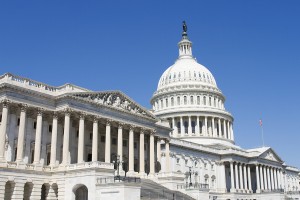Although it has been a slow one, there have been some bright spots in the United States economic recovery, says New York Federal Reserve President William Dudley in a speech Friday. The central banker confirmed that it will not be walking away from an accommodative monetary policy because the labor market is still in a difficult predicament today.
Dudley noted that there have been several economic prospects that are “reasonably favorable,” but he did concede that he would like to see faster economic growth, a quicker decrease in the unemployment rate and higher inflation.
“I would very much prefer faster economic growth and more rapid progress towards our dual mandate objectives of maximum sustainable employment and price stability,” Dudley said last week in his oration presented at Brooklyn College in New York. “Hence, the continued need for monetary policy to remain highly accommodative to support the economic recovery to the fullest.”
 Since the quantitative easing measures were introduced by former Fed Chair Ben Bernanke, the jobless rate threshold to start raising rates was 6.5 percent, which was reaffirmed by new Fed Chair Janet Yellen, though she did warn that they might not even be raised. Dudley concurred with this suggestion.
Since the quantitative easing measures were introduced by former Fed Chair Ben Bernanke, the jobless rate threshold to start raising rates was 6.5 percent, which was reaffirmed by new Fed Chair Janet Yellen, though she did warn that they might not even be raised. Dudley concurred with this suggestion.
He made the case that rather than looking at a 6.5 percent unemployment figure, the Fed should analyze a wide variety of indicators which include the real estate market and financial state of those polled to make a complete health assessment of the overall labor market in the U.S. today.
“I do expect that growth will be strong enough to lead to continued improvement in labor-market conditions. I must caution, however, that the outlook for the unemployment rate is unusually uncertain,” said Dudley. “Such developments could result in a more muted rate of decline of the unemployment rate despite the faster growth.”
The nation’s unemployment rate stands at 6.7 percent.
The key Fed policy decision maker refrained from touching upon the central bank’s bond-buying measures. Instead, the Fed president said investor predictions that an increase in rates next year is sensible. However, analysts argue that his dovish tone in his speech and remarks might signify that the Fed is nowhere near tightening its near-zero interest rates that has been the policy for the past five years.
During an official swearing-in ceremony in Washington last week, Yellen reiterated her concerns again about the unstable labor market. We reported that Yellen promised that she would “do all that I can” to improve the availability of jobs and reassured the market she would continue the present interest-rate policy.
“I promise to never forget the individual lives, experiences and challenges that lie behind the statistics we use to gauge the health of the economy,” stated Yellen.
Charles Evans, president of the Chicago Fed, told an audience at the Columbus State University on Monday that it’s likely the Fed will continue trimming its bond purchases at a $10 billion tapering pace.
“We’re at a point now where we’re moving away from purchasing assets, we’re tapering, and our balance sheet continues to be very large but we’re not going to add to it as much,” said Evans, Reuters reported. “The last two meetings we reduced the purchase flow rate by $10 billion and we’re going to continue to do that.”
Many haven’t been so quick to assume the Fed will persist in tapering. There have been ardent critics, such as Peter Schiff, Ron Paul and Marc Faber, that think Yellen and the Fed will actually enhance its monthly bond-buying initiatives. Late last year, Evans himself tweeted that the Fed would increase QE by 26 percent in 2014.



